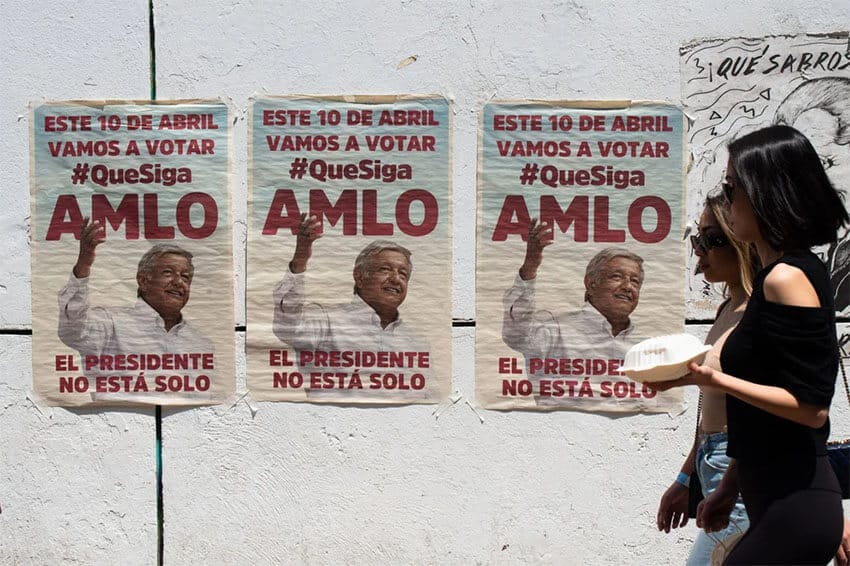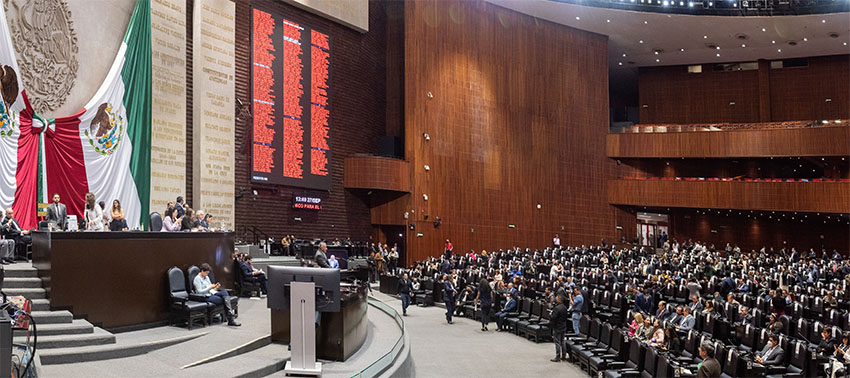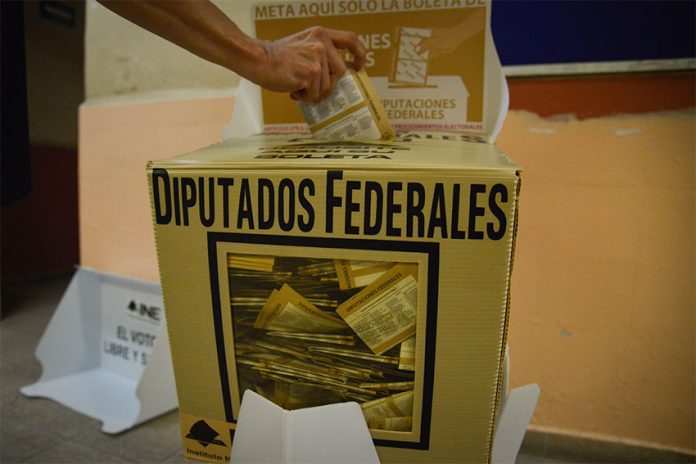A survey conducted for the National Electoral Institute (INE) has found strong support for key proposals in the federal government’s controversial electoral reform bill, but a Reforma newspaper poll yielded markedly different results.
Obtained by the newspaper El País, the results of the INE poll show that 93% of 400 respondents support the proposal to cut public funding for political parties.
Almost nine in 10 of those polled — 87% — agreed with the plan to reduce the number of federal lawmakers, while 78% supported the idea of allowing citizens to elect electoral councilors and electoral tribunal judges and 74% backed the move to cut the INE’s budget.
The proposed reform is currently being analyzed and debated by lower house lawmakers and could be put to a vote later this month.
The poll — conducted for INE by three private companies in September — also found majority, albeit less overwhelming, support for three other proposals.
Almost seven in 10 respondents — 68% — approved of the plan to allow more citizens to vote electronically, while 53% backed the proposal to get rid of state-based electoral institutes and tribunals.
Just over half of those polled — 52% — said they supported the proposal to replace the INE with a new, centralized authority to be called the National Elections and Consultations Institute (INEC). That result is very different to that yielded by a Reforma newspaper poll, which found that only 13% of an undisclosed number of respondents believe that the INE should be disbanded and replaced by a new authority.
Published Tuesday, the Reforma poll results show that 80% of respondents believe that the INE has played an important role in guaranteeing democracy in Mexico and 71% said that its demise would pose a threat to democracy.

Half of those polled by Reforma said that President López Obrador and the ruling Morena party want to dismantle the INE in order to “appropriate the new institute to control elections.”
Fewer respondents — 43% — said that the aim of the reform is to improve Mexico’s electoral system. Almost nine in 10 people — 88% — said it’s important for the electoral institute to be independent of the president of the day and political parties, while 79% said that guaranteeing “clean and impartial elections” should be the priority of electoral reform.
Only 48% of respondents said that electoral councilors should be elected by citizens, 30 points lower than the percentage found by the INE poll. Almost two-thirds of respondents — 65% — said that electoral reform should wait until after the 2024 presidential election, while 61% said that getting rid of the INE before that election is held will “create questions” about its legitimacy.
If the INE is disbanded in the coming months, 77% of respondents believe that a “post-election conflict” is very or somewhat probable.
López Obrador sees Reforma as a conservative newspaper opposed to his government, but 70% of those polled said they had a good or very good opinion of the president. A slightly higher percentage of respondents — 73% — said the same about the INE.
The poll results suggest that most respondents believe that protecting the INE and the current electoral system is more important than giving the president what he wants — even though they generally support him.
The INE survey yielded a significantly different result vis-a-vis attitudes toward the electoral institute, which is led by presidential antagonist Lorenzo Córdova. Only 56% of respondents said they had a positive opinion of the INE, with others expressing beliefs that it is corrupt, facilitates electoral fraud, is in cahoots with certain political parties and is a bad manager of public resources. The president and Morena lawmakers have made similar claims and insinuations themselves.
Mexico’s main opposition parties — the PAN, the PRI, the PRD and Citizens Movement — as well as business organizations, some civil society organizations and the Catholic Church, among others, have expressed opposition to the proposed electoral reform and spoken out in defense of the INE. The president and his cabinet ministers, Morena and its allies and the National Human Rights Commission, among others, support the proposed reform, which seeks to modify the constitution and thus requires the support of two-thirds of lawmakers — a super majority Morena and its allies don’t have — to pass Congress.

“Electoral reform is very important in order to banish fraud,” López Obrador said last month. “The [electoral] councilors act on orders, we have to correct that, enforce democracy as a way of life and a political system.”
In an interview with the newspaper El Universal, prominent political scientist José Antonio Crespo noted that Mexico is divided on the issue of electoral reform.
“The electoral issue is controversial,” he said. “… The INE has been the core of democratization [in Mexico] and a lot of sectors [of society] want to defend it. They don’t want it to be changed or for it to be subordinated to the government,” Crespo said.
“So it’s an issue of confrontation that without doubt places governability at risk. From now until the 2024 election these tensions are going to grow.”
In addition to commissioning a poll, the INE asked the European Commission for Democracy through Law — known as the Venice Commission — to offer an opinion on the proposed electoral reform. The electoral institute — whose very survival is at stake — might be more inclined to agree with the Venice Commission’s findings rather than the opinions of the majority of those who responded to its own poll.
In its “Opinion on the Draft Constitutional Amendments Concerning the Electoral System of Mexico,” the Venice Commission said that “the proposed amendments to the constitution do not provide sufficient guarantees of the independence and impartiality of the INEC and of the judges of the Electoral Tribunal.”
Among other critical remarks, the commission said that “the creation of a highly centralized INEC should be reconsidered since an onerous and complex centralization might compromise the impartial and independent operation of the electoral administration at different levels of the federation.”
Earlier in its report, the Council of Europe advisory body said that “among the proposed changes, three seem to stand out.”
- The creation of a new national electoral authority whose members would be directly voted in by ‘the people’ and also manage state and local elections.
- Cuts to public funding and media time for political parties.
- Reconfiguring of Congress not only by eliminating 200 (out of 500) proportional representation seats in the lower house, but also electing the remaining 300 by nation-wide lists from parties rather than districts.
“This reform, if adopted, will radically change the electoral system in Mexico and the management of its electoral process. Previously all constitutional electoral reforms had been proposed by the opposition,” the Venice Commission said.
“This is the first time that the president, whose political supporters have the majority in the Congress, initiates such ambitious constitutional changes which will significantly affect the next elections to take place in 2024.”
With reports from El País, Reforma and El Universal
